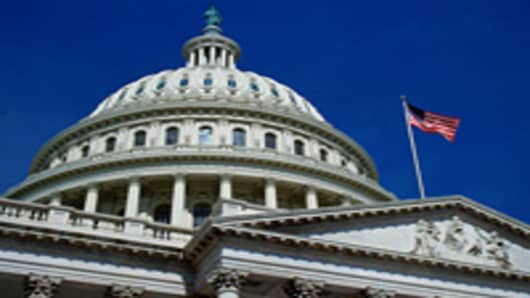With the U.S. congressional joint select committee on deficit reduction — or "super committee" as it has become known — needing to agree on cuts of $1.5 trillion within the next 48 hours, HSBC analysts are predicting Washington will agree to put off making tough decisions.
"Difficult decisions may be delayed. The super committee may come up with a procrastination plan that specifies targets for spending cuts and revenue increases, but leaves the details to congressional committees to write the necessary tax and spending legislation,” Kevin Logan, chief U.S. economist at HSBC, wrote in a research note as the deadline neared.
With time running out, Logan said he expects the difficult decisions to be kicked back to the very congressional committees who couldn’t agree on a deficit reduction plan in the first place.
With the deficit battle likely to dominate in a presidential election year, Logan is not optimistic. “Failure to come up with the required deficit reduction will, in theory, trigger across-the-board spending cuts called sequestration from January 2013,” he wrote.
This is likely to mean that the markets focus will turn from Europe’s debt woes to America’s huge debt pile, something the credit rating agencies will react to sooner or later, according to Logan.
“The rating agencies might be tolerant of this for a while, but failure to make clear progress could lead to downgrades of the U.S. sovereign credit rating at some point next year,” he added.
Barclays Capital analysts the talks over $1.5 trillion of cuts are just a drop in the ocean.
“The U.S. needs to reduce projected deficits dramatically to stabilize its fiscal profile. The actions of the committee simply represent a downpayment on a more comprehensive set of measures that will need to be enacted,” Rajiv Setia, the co-head of U.S. interest rate strategy at Barclays Capital, wrote in a note to clients.
“The risk of a downgrade in late 2012 remains high, especially if it is clear that politics will deter Congress from taking credible actions to stabilize fiscal finances after the presidential elections,” said Setia, who believes huge cuts are going to be needed to stabilize America’s debt-to-gross domestic product ratio given the experience of austerity cuts on growth in Europe.



